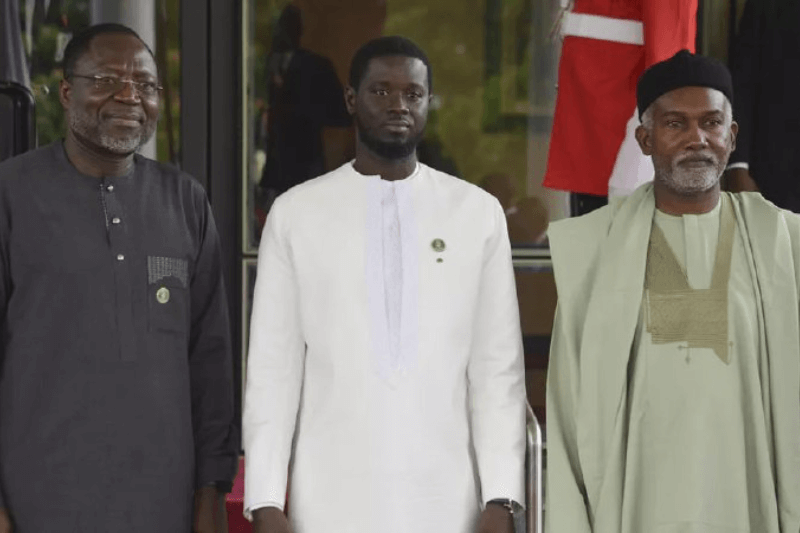On Sunday, the split regional bloc of West Africa encouraged Senegalese President Bassirou Diomaye Faye to interact with the three military-led member states in an attempt to bring the region whose stability has been under jeopardy together once they chose to leave the organization in January.
At its height in the Nigerian capital Abuja, the bloc known as ECOWAS designated Mr. Faye as its ambassador to meet with Mali, Niger, and Burkina Faso, which created their separate union following their respective coups severed ties with their neighbors.
The dialogue’s terms were not stated clearly right away. Following his election triumph in March, the Senegalese president—who became the youngest leader in Africa—has all the credentials needed to act as a facilitator, Omar Alieu Touray, head of the ECOWAS Commission, stated during the conference.
At their conference the day before, the three nations under influence of the coup had already stated that they had “irrevocably turned their backs on ECOWAS.” ECOWAS has never before lost members in this manner during almost 50 years of existence.
Keep Reading
In the framework of an unparalleled regional crisis, analysts view Faye’s mission as crucial. But given residual regional tensions, Karim Manuel, a Middle East and Africa expert at the Economist Intelligence Unit, said it is unlikely to produce fruit anytime soon.
According to Mr. Touray, the bloc has not seen better times in years. “Our area is likewise at danger for disintegration. You most definitely not participate in an agreement you leave behind. Regarding free trade and free movement of people, the danger of losing those concessions still exists.”
Apart from the economic projects that ECOWAS may have to cease in the three nations if they do not return, their exit could also damage their people. As the primary political and economic power in West Africa, ECOWAS provides visa-free mobility inside member states and freedom of trade.
The three ECOWAS countries leaving could affect their neighbors on various levels. All of them have borders and deadly security concerns running across their territory against which the European Union is seeking cooperation. Observers have also cautioned that coups in countries whose people have complained of not benefiting from their rich natural resources could inspire other armies, especially in those countries.
Nigerian President Bola Tinubu, invited to stay the bloc’s president, urged fresh, more strong coalitions to let the region manage “enormous challenges” as his one-year term was about to close.
“Together, we can open the path for a brilliant future for all of West Africa,” Mr. Tinubu said.

